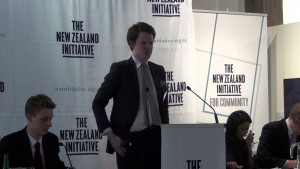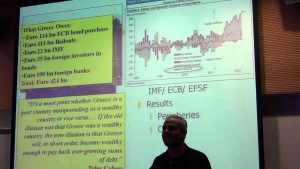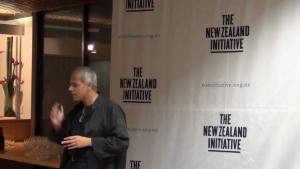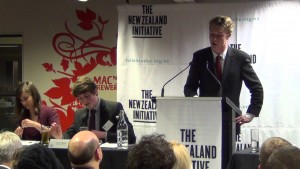
Next Generation Debates 2012 Grand-final
Watch the University of Auckland and Victoria University of Wellington battle it out with the moot: This house believes that we need higher taxes on the rich. Read more


Watch the University of Auckland and Victoria University of Wellington battle it out with the moot: This house believes that we need higher taxes on the rich. Read more
Economics students generally learn how to deal with recessions in their first semester. To cushion the economy in a downturn and speed up the recovery, students are taught to cut interest rates and provide fiscal stimulus. Read more
Global food security is an increasing challenge. A growing middle class in developing countries are demanding more protein. Read more
In the cult TV comedy Arrested Development, a character called Tobias Funke starts a folk band called “Dr Tobias Funke’s 100% good-time family band solution.” He and his family travel to medical conferences singing folk tunes persuading people to buy a lifestyle drug produced by a big pharma called Teamocil. Unfortunately, the sense of wellness in relationships created by Teamocil turns out to be the first sign of complete pituitary shutdown. Read more

Have we spent too much for too long? Are the clever financial instruments that were supposed to prop up the system starting to buckle? Read more

Have we spent too much for too long? Are the clever financial instruments that were supposed to prop up the system starting to buckle? Read more
The most remarkable feature of the global financial crisis is its sheer duration. For five years now, developed economies have been in trouble – much longer than ‘ordinary’ recessions usually last. Read more

Watch the Victoria University of Wellington and University of Canterbury battle it out with the moot: Issue of the minimum wage and whether it makes for a fair start in the workforce. Read more
Few things in politics look more certain than a change of government after the next Australian election in 2013. The Gillard Labor government is polling abysmally and plagued by constant leadership quarrels. Read more
The National Party has announced it will reduce the number of long-term beneficiaries by 30 per cent in five years. Ambitious stuff, but notably absent from the government’s Better Public Services programme is a commitment to ignore industry requests for state lifelines that may arise. Read more
As the Olympics begin to wind up, and countries reflect on their performance, the inevitable calls for reviewing funding arrangements are beginning to pour in. So far, these calls in New Zealand have been muted, mainly because we have done well – with the added bonus of winning more gold medals than Australia for much of the games. Read more
Of all the reasons why Europe’s monetary crisis keeps dragging on, the lack of a common language is not the most obvious one. Why should it matter when the predominant language of finance, politics and diplomacy is English? Read more
The New Zealand Initiative with the support of the Friedlander Foundation is hosting a debating series titled The Next Generation Debates: Fresh Perspectives on the Big Social Issues. Over the next two weeks the top two debaters from each of Auckland, Victoria, Canterbury and Otago universities will be going head to head over moots based around topical social issues. Read more
The Western world since the Enlightenment has been shaped by the inviolability of rule of law, a commitment to scientific enquiry, and an adherence to democratic process. But at the root of all of these values lies an openness to ideas and a willingness to discuss them. Read more
Thirty years ago, it was an everyday experience to see New Zealanders smoke in meetings, restaurants and even on public transport. Today, such activities are socially unacceptable and often outright illegal. Read more